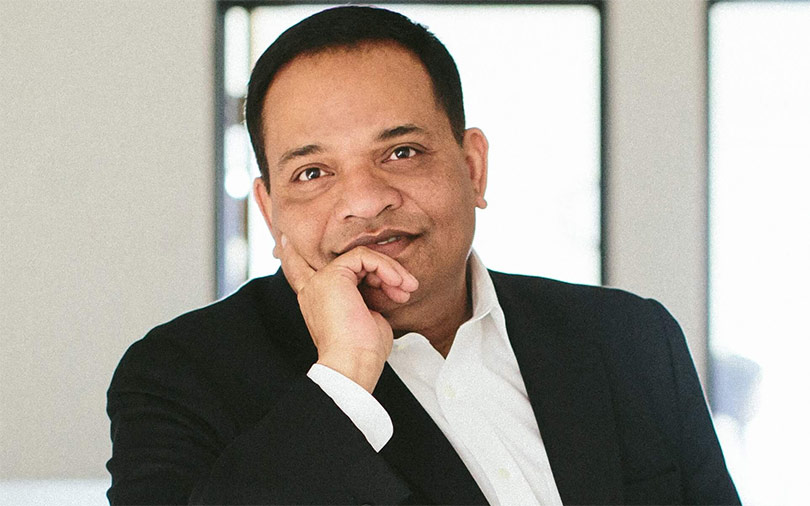
Enterprise investors help us acquire customers faster than VCs: Avaamo's Ram Menon


Last month, conversational artificial intelligence platform Avaamo Inc., raised $14.2 million in a Series A funding round led by Intel Capital. Ericsson Ventures, Mahindra Partners, Wipro Ventures and WI Harper had also put in money. Notably, a majority of its investors were not traditional venture capital firms but technology firms.
Founded in 2014 by Ram Menon and Sriram Chakravarthy, Avaamo has created AI-based conversational interfaces that are mostly deployed at large enterprises handling sensitive customer data. It has developed AI technology across broad areas in neural networks, speech synthesis, and deep learning to enable conversational computing. Some of its customers include SBI Mutual Fund, RBL Bank, Axis Bank, Franklin Templeton, ICICI Prudential, HDFC Loans, Reliance Nippon and Royal Sundaram among others.
In an interview with TechCircle, co-founder Menon spoke about how ecosystem players like Wipro and Intel help the company acquire customers faster rather than conventional VCs. Spending more than two decades with enterprise software companies has helped Menon understand their demands better, he said. Edited excerpts:

Your investors are tech industry firms like Intel, Ericsson, Mahindra and Wipro. What explains this trend?
We focus on large enterprises globally and that has helped raise this money from the ecosystem players—the ecosystem of enterprise software. We are optimising on Intel hardware. We focus on large telcos globally, and hence, the interest from Ericsson. They looked at dozens of companies before investing in us. Wipro is a partner and an investor. We work with many Mahindra group companies. These are the right set of investors for our next stage of growth.
With technology companies as investors, is it easier for you to acquire customers?

We have seven patents for our technologies. As an enterprise company, we don't need too much cash and we are focussed on ecosystem players rather than venture capitalists. We will go to them (the VCs) at some point. It is a win-win for all of us. All these companies have tried, tested and validated our technologies before they wrote a cheque. So, what our customers see is a validation by industry heavyweights of a new technology. Sometimes our investor firms are already a service provider for these customers. That is a nice way to go to the market. Also, we tell our potential customers to speak to our existing customers. That is the way to do it in enterprise software.
Could you tell us about your India operations?
We have a technology office in Bengaluru and a business office in Mumbai as most of our Indian customers are in the financial sector. We have an engineering office in Silicon Valley too. Around half of employees are in India.

How do you differentiate yourself from thousands of other AI conversational products and services?
In India, it is called a chatbot. Large enterprises have big problems like getting lost in the consumer noise. You cannot have consumers giving out banking passwords on a chat. There has to be a technology to manage that in conversation. The other thing is proprietary data like mutual fund or insurance data. Running AI on that is a not a trivial task. The third thing is a lot of companies have their own bots/channels and they want any such conversation to be embedded in that existing infrastructure.
Technologically, how is your product different?

What we use is vertical machine learning to make the computer more intelligent. For instance, a group plan in healthcare and life insurance mean totally different things. A telecom group plan is also different. So, the computer has to understand the context here, like a human being. Once you do that, you can do intensive judgement tasks. The computer needs to diagnose and ask questions accordingly. Chatbots are just a delivery model. How can you do it better, that is our model. We do all this while also trying to keep enterprise data with the enterprises as there are regulatory agencies overseeing data use.
Do you generate most of your revenue overseas?
Yes, almost 80% of our revenue comes from outside India. We have been active in the market only for a little over a year. We are growing at 60-70% quarter-on-quarter. Many large enterprises in India already use Avaamo. We might be only a Series A firm, but we have customers on all continents. We spent 2.5 years quietly building the product and worked closely with our partners for a year. Now, we are deployed in more than 40 countries. It is time to expand with the new funding. We will get more into other emerging markets in Asia.

When you look at the potential, it might seem endless. So, when do you decide to stop growing and focus on profitability?
True, you are right. I am a cautious and conservative entrepreneur. We can be profitable by this year-end, but we will focus on growth for now. It is too early for us to focus on profits today.
